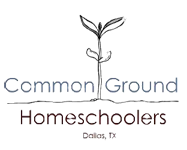In order to comprehensively commit to the well-being of our community, Common Ground Homeschool members abide by a Child Protection Policy comprised of guidelines to ensure awareness and safety.
Our Purpose
Common Ground Homeschoolers (CGH) provide encouragement, support, information, resources and community for parents who choose to homeschool. All CGH members are charged with supervising minors and maintaining an “only kindness” environment, free from bullying, abuse or neglect. CGH members will remain alert and proactive in order to protect those who cannot protect themselves.
What to Do
The following guidelines are provided to create an awareness of vulnerability to civil and criminal liability as well as to instill the need to protect children.
DO
- Supervise minors (ages 0-18 years); always have another adult [minimum total of 2 adults] present when supervising minors.
- Meet in public places when meeting with minors.
- Always have another adult [minimum total of 2 adults] present when meeting with minors.
- Advise other CGH members of activities away from the group regarding where, when, and with whom you meet.
- Always have two adults taking younger [non-related] minors to the bathroom.
- Keep physical contact public and minimal [for all non-related adults and minors]. Simple “hello” hugs are permissible, for example.
- Always have a minimum of two unrelated adults present during CGH sponsored events (including: field trips, in class rooms, and overnight trips).
- Keep groups together, perhaps using a buddy system.
- Be willing to be cheerfully accountable to parents and CGH leaders.
DON’T
- Meet one-to-one with minors behind closed doors or have secret meetings with minors.
- Check a minor for injuries under clothing without another adult present except in serious emergencies.
- Exchange kisses with non-related minors.
- Allow older children to take younger children to the bathroom alone.
- Transport a minors by yourself except for real emergencies.
Laws that address child abuse and neglect, as well as domestic violence, are in place. First-hand information regarding child abuse or neglect should be reported immediately to the appropriate civil authorities.
If you believe a child is being sexually abused, call the police. If you believe a child is at risk of imminent harm, call 911.
The following resources help identify child abuse and neglect and offer helpful information:
What is considered child abuse according to the federal Child Abuse Prevention and Treatment Act and how can you prevent it?
How can you identify sexual abuse and what age-appropriate information should you share with your children?
How can you pro-actively prevent sexual abuse? How can you protect someone who has experienced abuse?
If you suspect child abuse or neglect, how can you follow up on your concerns?
Learn how to protect your child from abuse. What can you do if you find yourself, your child, or another family’s child in an abusive situation?
Definitions of Child Abuse and Domestic Violence
Visit the following website for a description of child abuse and domestic violence with additional information on mandatory reporters, confidential records, and false reporting:
Child Abuse Hotline
Call 1-800-4-A-CHILD (1-800-422-4453) and press 1 or visit Childhelp National Child Abuse Hotline or Help for Kids. Although counselors do not report abuse, they can assist you with resources in your local area.
